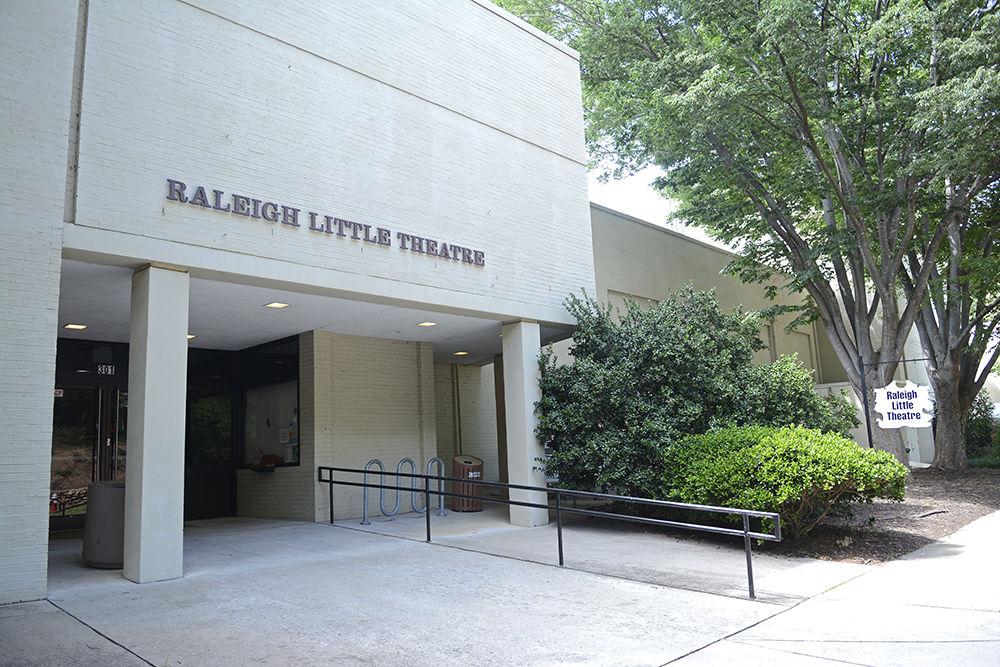
Sindy Huang
The Raleigh Little Theater began with a group of performers and technical workers banded together to join the nation-wide movement of little theaters, theaters that focus on intimacy with the audience rather than commercial success.
Situated less than half a mile from D.H. Hill library, a hub of local art and culture has offered the opportunity to engage with an extraordinary community for over 80 years. Imperative to our city’s consistently impressive performing arts scene, it’s none other than Raleigh Little Theatre.
Formed in 1936 during a national movement focusing on the establishment of small, intimate theaters, Raleigh Little Theatre provides Raleigh with avenues for anybody interested to explore local drama. Whether this be through involvement with its productions or a plethora of classes offered for all ages, the theater blurs the distinction between its members and the community which it serves.
“Just the nature of Raleigh Little Theatre forces it to be a community theater,” said Fidel Benton, Raleigh Little Theatre’s marketing manager. “We only have twelve paid people on staff, and everything is run by volunteers from building the sets to acting in the shows, and even providing things like running the phones or giving IT support.”
With the theatre typically putting on 10 or 11 professional-caliber shows annually with such a small paid staff, the sheer necessity of local volunteer involvement in virtually every aspect speaks volumes to both how deeply ingrained it lies within the Raleigh community and the enthusiasm exhibited by said community to participate within RLT. If a person exhibits any form of interest in getting involved with the theater, he or she would have no problem finding a facet suitable for them.
But what if that person had no theater experience whatsoever? Luckily, Raleigh Little Theatre has a wide array of both formal and informal classes
“We have a lot of classes which rotate quarterly offering different things like intro to acting, dissecting a script, or even something like corporate workshops,” Benton said. “We’re not the only place offering theater classes in the area but we are one of the oldest, and we’ve really found that people trust the RLT brand.”
Classes are offered for kids, teenagers and adults, and signing up is usually done via the theater’s website. Beyond these formal classes, Raleigh Little Theatre’s local, volunteer constituency allows for an abundance of informal behind-the-scenes training as well.
“Even for something like our costume shop,” Benton said “If someone had absolutely no experience and came down there, we would teach them the skills. It’s as easy as that.”
The closeness produced by a mainly local volunteer crew not only makes it incredibly easy to be involved with the theater, but also adds layers of intimacy to the productions put on by it. The current production, “Blood Done Sign My Name”, is a story set in 1960s Oxford, North Carolina which looks at a racially motivated murder and the subsequent fallout as experienced by a young boy and his family. The amalgamation of a local crew, a plot centered only 60 miles from Raleigh, a stellar cast and the raw reality of North Carolina race relations gives the performance a sincere vitality one would be hard pressed to find in most other theaters.
“It didn’t really feel like an audience watching a fictional performance,” said Berkeley Whitehurst, a third-year studying horticulture. “The play is set in the 1960s, you could look around and see people who probably experienced the very things being portrayed. The audience is almost as much a part of it as the performers.”
Raleigh Little Theatre has provided the opportunity for any curious Raleighite to get involved in a professional, yet personal and all inclusive dramatic community for decades. Seasoned performers and complete laymen alike are welcome to contribute to an establishment which is continually enriching both our state and city’s culture.